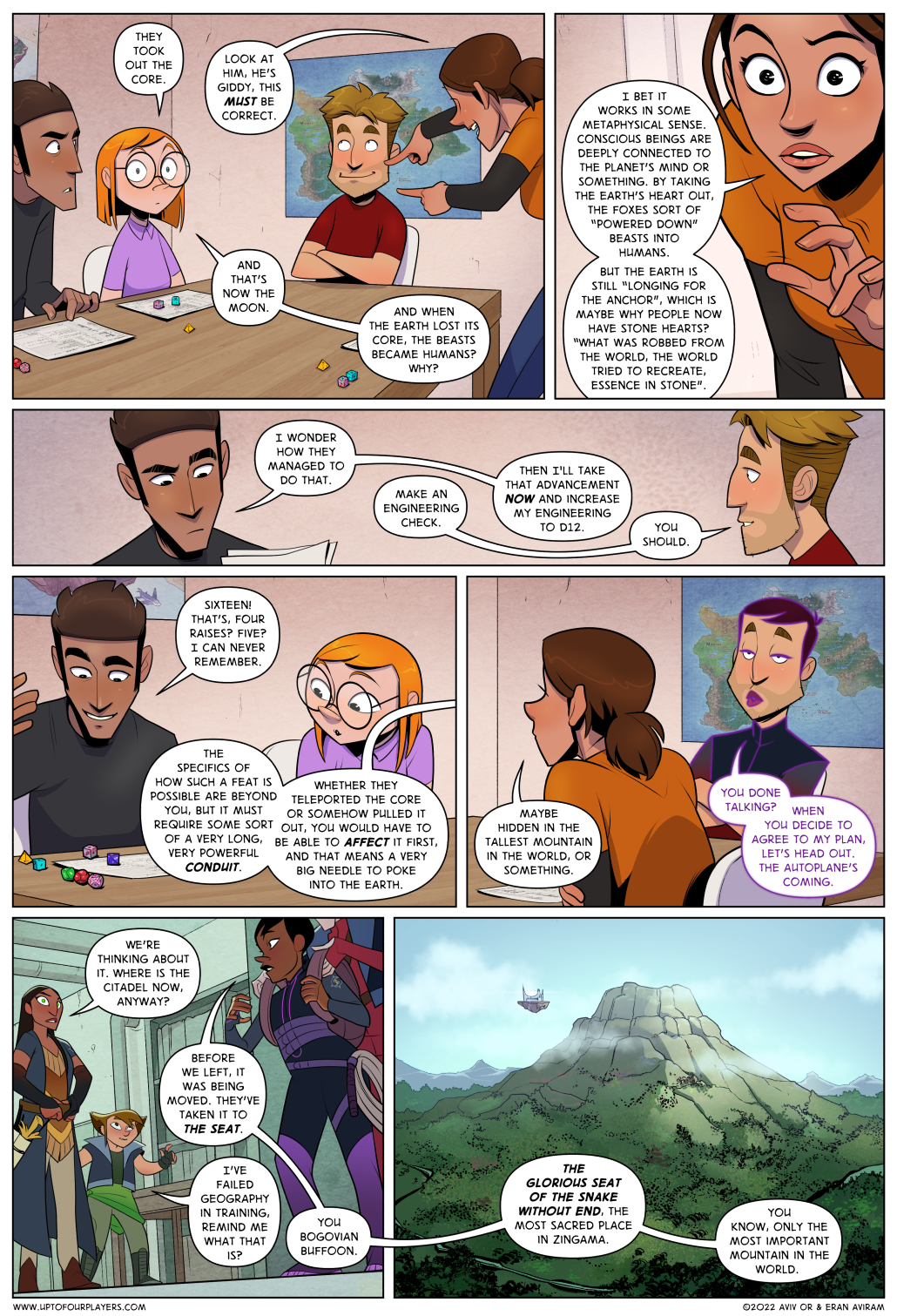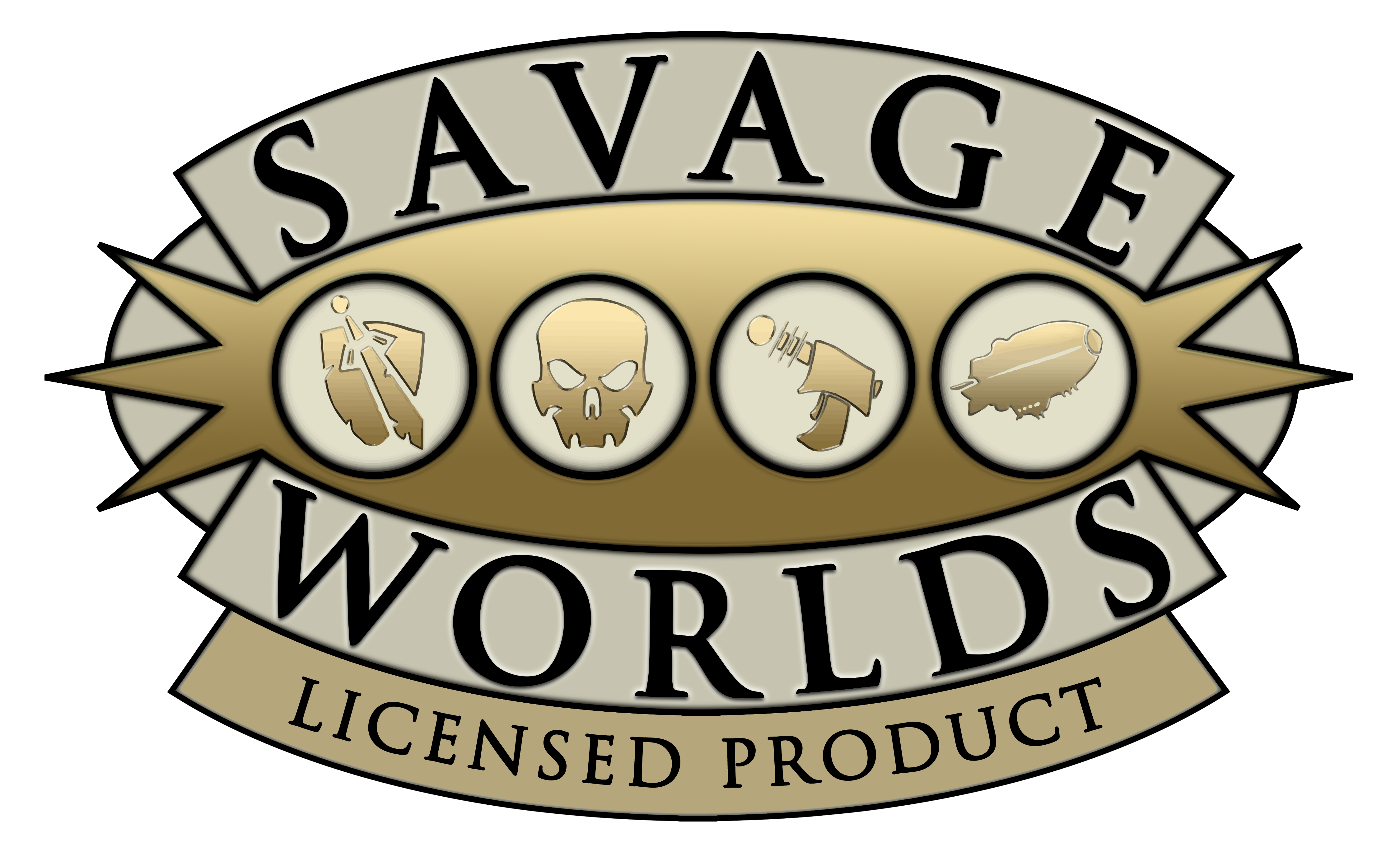The decision to shift into and out of the in-game world can be a very powerful guiding action*. Here, the GM Nadav uses it to interrupt the table discussion at a crucial point: the players reached The Solution but they don’t know it yet, so they could have kept guessing and talking for another twenty minutes. There’s nothing inherently wrong with letting the players talk among themselves for ages, but in this case we should consider two things:
First, because they’re talking about the core (har har) of the entire campaign, this runs the danger of drowning the dramatic revelation they just made in a sea of complexity and guesses, some of which might push the players in unhelpful directions; in essence, the players are at a risk of creating wrong expectations for themselves, and then feeling disappointed when those expectations don’t come around. Lily especially likes to come up with grander and grander ideas, and expect them to be revealed as true (“GASP I bet that there’s a sixth type of beast which is actually behind everything!“). Rotem and Guy are running the risk of drowning themselves in a world of endless options, simply by keeping guessing stuff (“or maybe we were wrong about this, and it is on the moon? Or maybe there are several machines and we need to find them all…”), which increases their worry-meters; they get stressed when too many options are presented to them. So by limiting the players’ free discussion time, the GM also helps them avoid running into their own pitfalls.
Second, the session is coming to an end, they have only a few minutes left. Nadav wants to end with a definite answer, so that the players will feel grounded in where things are heading.
So Nadav wants the players to stop guessing, and also to feel vindicated for finding the right answer, but he also doesn’t want to just say “yes you’re right, it’s in the biggest mountain”. So right after Rotem suggests it, he switches to Contessa, because that forces the players into character and out of the “we’re talking among ourselves” mindset. He then forces the conversation into talking about The Seat. Even if Muna weren’t going to ask about it, Contessa would bring it up somehow.
Finally, the fact that “the camera shifts to show the mountain” makes it clear to the players that not only are they right, but it’s also where the campaign is heading. Around the table, this “camera shift” is the GM describing the scene; description shows importance. It’s also clear from Nadav’s tone and demeanour, which can’t be shown in comics, but just check out Brennan Lee Mulligan when he finishes an episode with a big reveal and you’ll see exactly what I mean.
Players are also able do an in-game shift, and we’ve actually seen it happen before (and this is what happened between the panels).
*Guiding actions are a ttrpg concept conceived in the Israeli theoretical scene. Uri and I talked about guiding actions in our podcast once, and Uri has a practical guide which I helped edited (and it recently became a Copper Seller).




